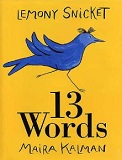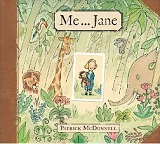 Proofiness
Proofiness
The Dark Arts of Mathematical Deception
by Charles Seife
Viking, 2010. 295 pages.
Starred Review
I’ve already admitted that I’m a certified Math Nut. And that I read popular-audience math books for fun. I had to remind myself that I’m not teaching Introduction to Statistics any more, so I didn’t need to mark passages to read to the class. (I couldn’t stop myself, though, from noticing passages that would have been great to read to a Statistics class.)
This book is very much along the lines of How to Lie With Statistics, but it uses up-to-date, recent examples. It demonstrates all too public examples of people who, either through ignorance or malfeasance, use statistics for nefarious purposes.
When I started at the library where I work now, they asked me to participate in a game of “Three Truths and a Lie.” I had just read the introduction to this book and effectively used what I learned: I inserted a number into each statement. Sure enough, only one person guessed which statement was my lie! Here’s how this concept worked in a much more serious scenario:
“As he held aloft a sheaf of papers, a beetle-browed Joe McCarthy assured his place in the history books with his bold claim: ‘I have here in my hand a list of 205 — a list of names that were made known to the Secretary of State as being members of the Communist party and who nevertheless are still working and shaping policy in the State Department.’
“That number — 205 — was a jolt of electricity that shocked Washington into action against communist infiltrators. Never mind that the number was a fabrication. It went up to 207 and then dropped again the following day, when McCarthy wrote to President Truman claiming that ‘we have been able to compile a list of 57 Communists in the State Department.’ A few days later, the number stabilized at 81 ‘security risks.’ McCarthy gave a lengthy speech in the Senate, giving some details about a large number of cases (fewer than 81, in fact), but without revealing enough information for others to check into his assertions.
“It really didn’t matter whether the list had 205 or 57 or 81 names. The very fact that McCarthy had attached a number to his accusations imbued them with an aura of truth. Would McCarthy make such specific claims if he didn’t have evidence to back them up? Even though White House officials suspected that he was bluffing, the numbers made them doubt themselves. The numbers gave McCarthy’s accusations heft; they were too substantial, too specific to ignore. Congress was forced to hold hearings to attempt to salvage the reputation of the State Department — and the Truman administration.
“McCarthy was, in fact, lying. He had no clue whether the State Department was harboring 205 communists or 57 or none at all; he was making wild guesses based upon information that he knew was worthless. Yet once he made the claim public and the Senate declared that it was going to hold hearings on the matter, he suddenly needed some names.”
Charles Seife sums up the point of this book:
“As McCarthy knew, numbers can be a powerful weapon. In skillful hands, phony data, bogus statistics, and bad mathematics can make the most fanciful idea, the most outrageous falsehood seem true. They can be used to bludgeon enemies, to destroy critics, and to squelch debate. Indeed, some people have become incredibly adept at using fake numbers to prove falsehoods. They have become masters of proofiness: the art of using bogus mathematical arguments to prove something that you know in your heart is true — even when it’s not.
“Our society is now awash in proofiness. Using a few powerful techniques, thousands of people are crafting mathematical falsehoods to get you to swallow untruths. Advertisers forge numbers to get you to buy their products. Politicians fiddle with data to try to get you to reelect them. Pundits and prophets use phony math to get you to believe predictions that never seem to pan out. Businessmen use bogus numerical arguments to steal your money. Pollsters, pretending to listen to what you have to say, use proofiness to tell you what they want you to believe. . . .
“At the same time, proofiness has extraordinarily serious consequences. It nullifies elections, crowning victors who are undeserving — both Republican and Democratic. Worse yet, it is used to fix the outcome of future elections; politicians and judges use wrongheaded mathematics to manipulate voting districts and undermine the census that dictates which Americans are represented in Congress. Proofiness is largely responsible for the near destruction of our economy — and for the great sucking sound of more than a trillion dollars vanishing from the treasury. Prosecutors and justices use proofiness to acquit the guilty and convict the innocent — and even to put people to death. In short, bad math is undermining our democracy.”
But the good news is that you can fight Proofiness with knowledge:
“The threat is coming from both the left and the right. Indeed, proofiness sometimes seems to be the only thing that Republicans and Democrats have in common. Yet it’s possible to counteract it. Those who have learned to recognize proofiness can find it almost everywhere, ensnaring the public in a web of transparent falsehoods. To the wary, proofiness becomes a daily source of great amusement — and of blackest outrage.
“Once you know the methods people use to turn numbers into falsehoods, they are powerless against you. When you learn to shovel proofiness out of the way, some of the most controversial topics become simple and straightforward. For example, the question of who actually won the 2000 presidential election becomes crystal clear. (The surprising answer is one that almost nobody would have been willing to accept: not Bush, not Gore, and almost none of the people who voted for either candidate.) Understand proofiness and you can uncover many truths that had been obscured by a haze of lies.”
So this book can make the reader proofiness-proof. Besides being fascinating, it will empower you to see through the methods people use to try to cloud the truth. (You also might get some ideas for being a better contestant in a game of Three Truths and a Lie.)
I find myself wanting to cite examples of proofiness in action in the real world, but I’m afraid that once I get started, I won’t be able to stop. Even though I don’t teach Introduction to Statistics classes any more, I hope that professors out there will bring this book into their classrooms. They can use it to utterly silence that oh-so-annoying question students inevitably ask: “But how will we USE this?” The math in this book is woven into the very fabric of our society.
To finish off this review, I’m going to give a spoiler, so don’t read any further if you don’t want to know the “surprising answer” of who should have won the 2000 Presidential election:
Statistically speaking, within any reasonable margin of error, the 2000 presidential election in Florida was a tie. So according to Florida election law, the winner should have been determined by lot — the flip of a coin. I guess you can see why he says almost nobody would have been willing to accept that determination.
Buy from Amazon.com
Find this review on Sonderbooks at: www.sonderbooks.com/Nonfiction/proofiness.html
Disclosure: I am an Amazon Affiliate, and will earn a small percentage if you order a book on Amazon after clicking through from my site.
Source: This review is based on a library book from the Fairfax County Public Library.









